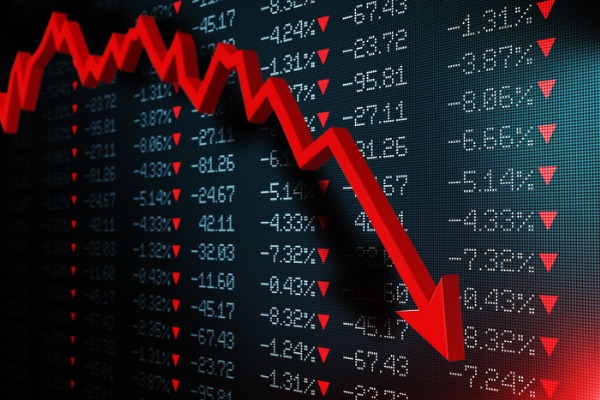Market snapshot: inflation wipes out stock market's September gains
14th September 2022 08:18
by Richard Hunter from interactive investor
An optimistic start to the month ended abruptly late yesterday with grim US inflation numbers. The cost of living is having a big impact here too. Our head of markets rounds up the action.

Investors are for the moment back to square one, as a hot US inflation print obliterated recent market gains.
The August reading did show a slight reduction to 8.3% at the headline level, which is less than had been hoped for. However, the real surprise came from core inflation, which strips out volatile energy and food prices, which doubled to 0.6% from the previous month. Overall, even declining gasoline prices were offset by gains in rent and food costs.
- Find out about: Buy international shares| Top US Stocks | Interactive investor Offers
The implications from the hotter-than-expected numbers are clear. Whereas the recent market rally was predicated on an assumption that inflation had peaked, it remains more resilient than had been hoped, such that the Federal Reserve will have little option but to continue with its aggressive monetary policy.
The likelihood of a 0.75% hike at the September meeting has now become a near certainty, with a minority of economists floating the possibility of a blow-out 1% increase. Unlikely though that may be, it nonetheless underlines the fact that persistent inflation could result in rates being higher for longer. It also raises concerns that, while the Fed continues to attempt to beat inflation into submission, recession could follow if the rate rises prove too much for the economy.
Amid the market turmoil, interest rate sensitive stocks such as big tech took a hit, with the likes of Apple Inc (NASDAQ:AAPL), Microsoft Corp (NASDAQ:MSFT), Alphabet Inc Class A (NASDAQ:GOOGL) and Amazon.com Inc (NASDAQ:AMZN) shedding around 5% and Facebook owner Meta Platforms Inc Class A (NASDAQ:META) sliding by over 9%.
The declines wiped out the optimism of previous sessions and the Nasdaq index has now lost 26% in the year to date. The S&P500, which also has a large exposure to tech, is now down by 17% while the benchmark Dow Jones is 14% lower this year.
Asian markets were unsurprisingly weaker for the most part as the trading baton was handed over. As investors sought refuge in the US dollar as a haven investment, pushing the price to new recent highs, there was further pressure on local currencies. With the potential to knock on to the fact that many of the countries in the region are reliant on exports, the moves further heightened tensions on whether any economic recovery is possible in the shorter term.
- Is the US a land of opportunity for trust investors?
- Do emerging markets offer better value than the US, UK and Europe?
- The sustainable funds weathering the style storm
The theme continued at home, with UK inflation remaining up by 9.9% over the last year, although the number did represent a slight easing from last month, fuelled by falling petrol prices. Nonetheless, the impact remains central to the UK economic outlook, which remains on shaky ground, and where further interest rate hikes are expected to come from the Bank of England.
The more domestically-focused FTSE250 has borne the brunt of the worsening outlook and now stands down by almost 19% in the year to date.
The strength of the dollar, which further weakened sterling, limited some of the opening losses for the flagship UK index.
However, the sell-off towards the end of the session yesterday following the US inflation report and the subsequent weak opening today, has also wiped out any gains for the FTSE100 in the year to date, with the index now 0.5% in the red. Declines were broad based, with some broker downgrades putting additional pressure on individual stocks such as Ocado Group (LSE:OCDO) and United Utilities Group (LSE:UU.).
These articles are provided for information purposes only. Occasionally, an opinion about whether to buy or sell a specific investment may be provided by third parties. The content is not intended to be a personal recommendation to buy or sell any financial instrument or product, or to adopt any investment strategy as it is not provided based on an assessment of your investing knowledge and experience, your financial situation or your investment objectives. The value of your investments, and the income derived from them, may go down as well as up. You may not get back all the money that you invest. The investments referred to in this article may not be suitable for all investors, and if in doubt, an investor should seek advice from a qualified investment adviser.
Full performance can be found on the company or index summary page on the interactive investor website. Simply click on the company's or index name highlighted in the article.